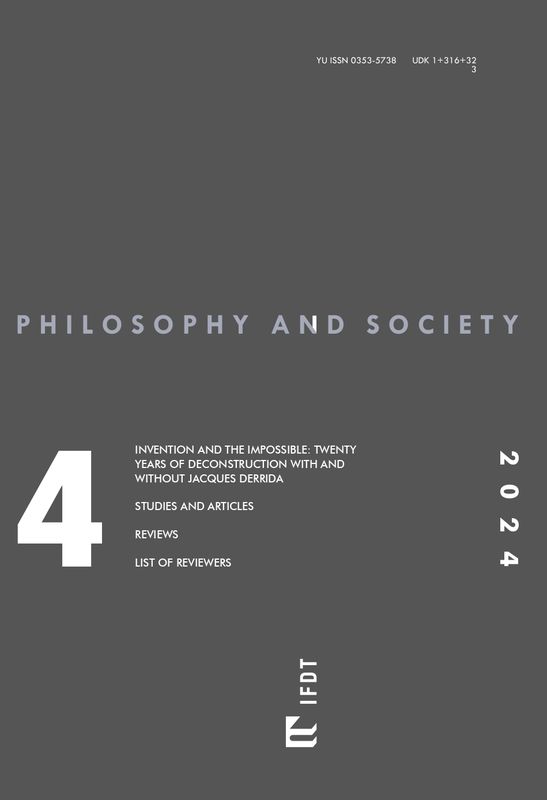The Death of the People
The Death of the People
Author(s): Gil AnidjarSubject(s): Philosophy, German Idealism, Structuralism and Post-Structuralism
Published by: Institut za filozofiju i društvenu teoriju
Keywords: death; people; Derrida; Heidegger; numbers
Summary/Abstract: Death, Derrida suggests in Politics of Friendship, is a question of numbers. Yet, death is also always “mine,” which is why Heidegger can say that “the dying of Others is not something which we experience in a genuine sense; at most we are always just ‘there alongside’.” Between my death and the death of everyone, between the one and the infinitely many, I have found myself wondering about a different measure, a more limited and distinct grammatical — or arithmetic — register, in which is raised the question of our death. The death, not of humanity, nor quite the death of all others, but the death of the people, the death of we who count and count for and on each other (or imagine we do). This is where Derrida’s calculability or incalculability of death intervenes at its most opaque, it seems to me. Somewhere between the one and the very many, the universal many of humanity, between what Heidegger calls “mineness” (which, when it comes to death, remains a possibility) and the death of (all) others, there would be found the death of we, the people.
Journal: Filozofija i društvo
- Issue Year: 35/2024
- Issue No: 4
- Page Range: 759-782
- Page Count: 24
- Language: English

